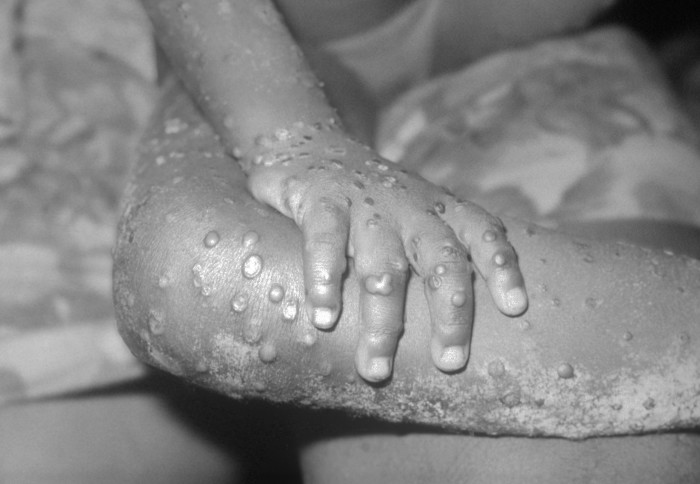New consortium to tackle monkeypox outbreaks
by Ryan O'Hare

Imperial researchers will join the UK’s leading research institutions as part of a new consortium to tackle monkeypox.
The new UKRI-funded consortium will work to develop better diagnostic tests, identify potential therapies and study vaccine effectiveness and the spread of the virus.
Led by the Pirbright Institute and the MRC-University of Glasgow Centre for Virus Research, it brings together 25 leading researchers and scientists from 12 institutions across the UK, funded by £2 million from the Biotechnology and Biosciences Research Council (BBSRC) and the Medial Research Council (MRC).
The consortium will focus on building our understanding in a number of key areas, from making diagnosis more rapid, to improving available treatments.
Researchers will work closely with experts at government agencies – the Animal and Plant Health Agency, UK Health Security Agency, and Defence Science and Technology Laboratory – to study the current outbreak and inform the public health response in the UK and internationally.
Dr Jesus Rodriguez-Manzano, from the Department of Infectious Disease will lead Imperial College London's contribution.
Detection and treatment
On the diagnostics and treatment arm, researchers will develop new tests to help speed up diagnosis, such as lateral flow tests or rapid PCR tests. They will also screen potential drug treatments in the lab to determine which ones could be developed for further testing.
They will study the virus and how it infects humans to identifying targets for future therapies. Characterising the genome of the virus and studying how it is evolving, and how this is linked to changes in the transmission and pathology of the virus.
The teams will work to understand the human immune response to the virus, including studying samples from infected individuals, as well as identifying animal reservoirs and potential spill-over routes of transmission between animals and humans.
Work from the consortium will also study the effectiveness of the smallpox vaccine (which provides protection against monkeypox) by tracking the immune responses after primary and secondary vaccination of up to 200 individuals.
Professor Bryan Charleston, co-lead from The Pirbright Institute, said: “The implications of the current monkeypox outbreak are huge. As well as tackling the current outbreak, we also need to be fully prepared for next outbreak, because worldwide there’s a huge reservoir of infection. One of the key ways we can do this is to develop rapid tests, which are very important to help clinicians on the front line to manage the disease.”
Professor Massimo Palmarini, co-lead from the MRC-University of Glasgow Centre for Virus Research, said: “By bringing together research expertise in different areas, we will harness the UK’s world-leading knowledge to learn more about how the virus works and spreads and provide the foundations for the development of potential new treatments.”
Professor Melanie Welham, Executive Chair of BBSRC, said: “This new national consortium will study the unprecedented monkeypox outbreak to better understand how to tackle it. This will feed rapidly into global public health strategies, developing new diagnostic tests and identifying potential therapies.”
-
For more information about Monkeypox, including vaccination, visit the NHS website. For current guidance visit the UK HSA website.
This article is based on materials from the UKRI.
Image: Wikicommons / Centers for Disease Control and Prevention
Article supporters
Article text (excluding photos or graphics) © Imperial College London.
Photos and graphics subject to third party copyright used with permission or © Imperial College London.
Reporter
Ryan O'Hare
Communications Division